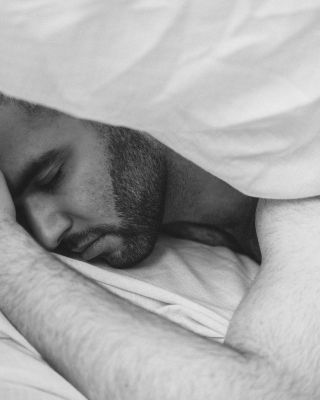Sleep
Sleep Medications for Insomnia: Limitations and Alternatives
Sleep-aid use is on the rise—and this is a concern.
Posted April 4, 2023 Reviewed by Ekua Hagan
Key points
- There is a potential association between certain prescribed sleeping aids and a significant risk of developing dementia.
- Disordered sleep, or failing to sleep seven- or eight-hour periods, poses problems as disconcerting as the effects of the drugs used to treat it.
- To resolve sleep problems without drugs, one should consider making changes in personal daily routine and lifestyle.

A study published recently (January 2023) in the Journal of Alzheimer’s Disease is the latest confirmation of prior scientific warnings about a potential association between certain prescribed sleeping aids, including benzodiazepines, "Z-hypnotic drugs," and trazodone, and a significant risk of developing dementia—as high as 79 percent in Caucasian adults, ages 71-77. Additional research suggests these medications also are linked to other adverse effects, namely increased risk of falls and resulting fractures, memory loss, and confusion among older adults and safety concerns. An article appearing in a 2019 issue of Frontiers in Behavioral Neuroscience contends that commonly prescribed benzodiazepines for anxiety and sleep suppress the central nervous system and the brain’s awake response to danger, causing some study participants to sleep through loud fire alarms.
But if left untreated, disordered sleep, which involves difficulties falling asleep or remaining asleep during a seven- or eight-hour period, poses problems that can be as disconcerting as the effects of the drugs used to treat it. In Nature and Science of Sleep, for example, scientists indicate short-term consequences of insomnia include increased response to stress, emotional and mood disorders, and cognitive, memory, and performance deficits.
Over longer periods, sleep disruption can lead to metabolic, nervous, and circadian rhythm changes; immune system dysfunction; hypertension; cardiovascular disease; gastrointestinal disorders; some cancers, including colorectal cancer; shortened life expectancy; and, of course, the development of Alzheimer’s disease and dementia.
Additionally, acute sleep loss or disrupted sleep—even in young, healthy people—is linked to increased levels of the protein tau in cerebral spinal fluid. Abnormal accumulations of tau are believed responsible for creating neurofibrillary tangles found in the brain cells of Alzheimer’s patients.
Sleep-Aid Use Is on the Rise
Recent numbers from the Centers for Disease Control and Prevention indicate the use of sleeping pills doubled between 2010 and 2020, with more than 8 percent of individuals aged 18 or older now reporting they used medication to fall or stay asleep daily, or on most days, during the past month. Women are more likely than men to take sleeping pills, and sleep medication use tends to increase with advancing age, according to the CDC.
Meanwhile, the National Sleep Foundation reports that as many as one-third of all adults struggle with episodic or chronic insomnia, and the percentage is even higher—48 percent—in older Americans.
These statistics are of particular concern, especially because some patients will overuse prescribed sleep medications, inappropriately combine them with other drugs, or take them beyond a recommended period of time. Some of these drugs also can be addictive.
What About OTC Sleep Drugs?
The most commonly used over-the-counter sleep aids contain diphenhydramine (Benadryl) which blocks both histamine and acetylcholine to make people sleepy. Acetylcholine is a neurotransmitter in the brain that plays a key role in memory, learning, mood, and arousal and regulates skeletal muscle movement and smooth and cardiac muscle. Anticholinergic drugs negatively affect sleep architecture and reduce restorative deep, slow-wave, and rapid-eye-movement sleep necessary for cleansing the brain of the previous day’s wasteful substances. Although short-term use of these medications may be acceptable in specific patients for controlling anxiety and other stress-related disorders, long-term use is ill-advised. In older populations, these medications can cause delirium.
The number of Americans who buy over-the-counter (OTC) sleep aids is estimated to be in the millions, but these drugs offer no permanent solution to a chronic sleep disorder. Indeed, not enough is known scientifically about effects of their long-term use.
Most nonprescription sleep medications contain antihistamines, which can make you sleepy but lose effectiveness over time. Other OTC pills fall into the dietary supplement category. They can also make a person sleepy but are intended to suppress appetite and control hunger. When used for other purposes, they can even prove dangerous. Melatonin pills, meanwhile, control or shift a person’s natural sleep-wake cycle; they are not meant as sleep aids, although they can make a person sleepy. Aftereffects of melatonin pills may include nausea, headaches, and daytime sleepiness.
So, is insomnia simply a case of “damned if you take drugs and damned if you don’t?”
Alcohol, Cannabis and CBD
Alcohol and marijuana use are also on the rise as people seek other ways to slow down and sleep at night. Alcohol is notorious for damaging sleep quality, reducing REM, slow wave sleep and increasing middle-of-the-night arousal.
Cannabis has been shown to be beneficial to sleep, but only with short-term use. Chronic users will experience less REM sleep, less slow wave sleep, and diminished overall sleep time. CBD offers hope and is now being commonly used for sleep. However, while it has been shown to benefit anxiety, the benefits to insomnia are still under investigation, and may not last.
Insomnia Is a Complex Disorder
Solutions to insomnia are not readily found in a sleeping-pill bottle. The problem is complex and frequently linked to other physical and mental disorders like restless legs syndrome, obstructive sleep apnea, depression, and anxiety disorders. Do examine how you feel mood wise most of the day. Figure out if you feel too caffeinated, jittery, jumpy, or “adrenalized” by day. Most people with anxiety will be tired but unable to nap. Consider professional help if this sounds familiar.
Bottom line: Consider making changes in personal daily routine and lifestyle to resolve sleep problems without drugs. That means:
- Exercise regularly, stop smoking, and avoid consuming caffeinated beverages or alcohol at least several hours before bedtime.
- Establish a daily regimen of going to bed and awakening at the same times.
- Slow down in the evenings prior to bed. Nothing too exciting, including electronic devices. Think, “Tech off at 10.”
- Should sleep not happen after about 20 minutes, get out of bed, go to another room, and engage in a quiet activity until feeling sleepy.
- Put a cloth over the bedroom clock, turn it upside down on the floor, or place it where you cannot readily see it. Constantly checking the time heightens stress and does nothing for sleep.
- Keep the bedroom comfortably cool and dark and cover—or turn off—any tiny, glowing lights from various electronic devices. The retina can sense light and remains active even when the eyelids are closed. Eye masks have been shown to improve sleep.
- Read books in bed with a dim (sunset color) light.
- Learn to meditate. Even 10 minutes a day can go a long way. The core lesson in meditation is not to keep your mind still, but to practice reining in thoughts in order to come back to your breath. We all have monkey minds; the lesson of meditation is to start to control it better.
It’s also important to try any of the above for more than a night. Too many people give up too easily. Have patience. This is one of the greatest benefits of working with a sleep doc—accountability. Stick to your routine for at least two weeks.
And, if all else fails, contact your primary care physician or a sleep specialist for other treatment options. In the words of one-time comedic actor W.C. Fields, the best cure for insomnia is to get a lot of sleep.
To find a therapist, please visit the Psychology Today Therapy Directory.




